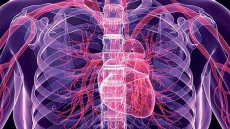Low-dose aspirin can help prevent new blood clots among people who are at risk and have already suffered a blood clot, says a promising study.
According to Australian researchers, low-dose aspirin lowers the occurrence of new venous blood clots and represents a reasonable treatment option for patients who are not candidates for long-term anticoagulant drugs such as warfarin.
“Aspirin represents a useful treatment option for patients who are not candidates for anticoagulant drugs because of the expense or the increased risk of bleeding associated with anticoagulants,” claimed study's lead author John Simes, a professor at University of Sydney.
During the study, compared to placebo patients, those who took 100 mg daily of aspirin had a one-third reduction in the risk of thromboembolism (obstruction of a blood vessel by a clot) and deep vein thrombosis (DVT), which is the formation of a blood clot in a deep vein, predominantly in the legs.
It also reduced pulmonary embolism which is a blood clot affecting the arteries that supply blood to the lungs.
Most people who have had a blood clot in a leg vein (deep-vein thrombosis) or an embolism (where the clot blocks the blood flow) have anticoagulant drug treatment (such as warfarin) for at least six months.
However, long-term anticoagulant drugs are expensive and may cause bleeding in some patients.
For people who are not able to cope with this, the viable alternative of taking regular aspirin will be a great benefit.
“Aspirin will be ideal in many countries where prolonged anticoagulant treatment is too expensive. A major benefit of this treatment is its cost-effectiveness,” Simes added.





